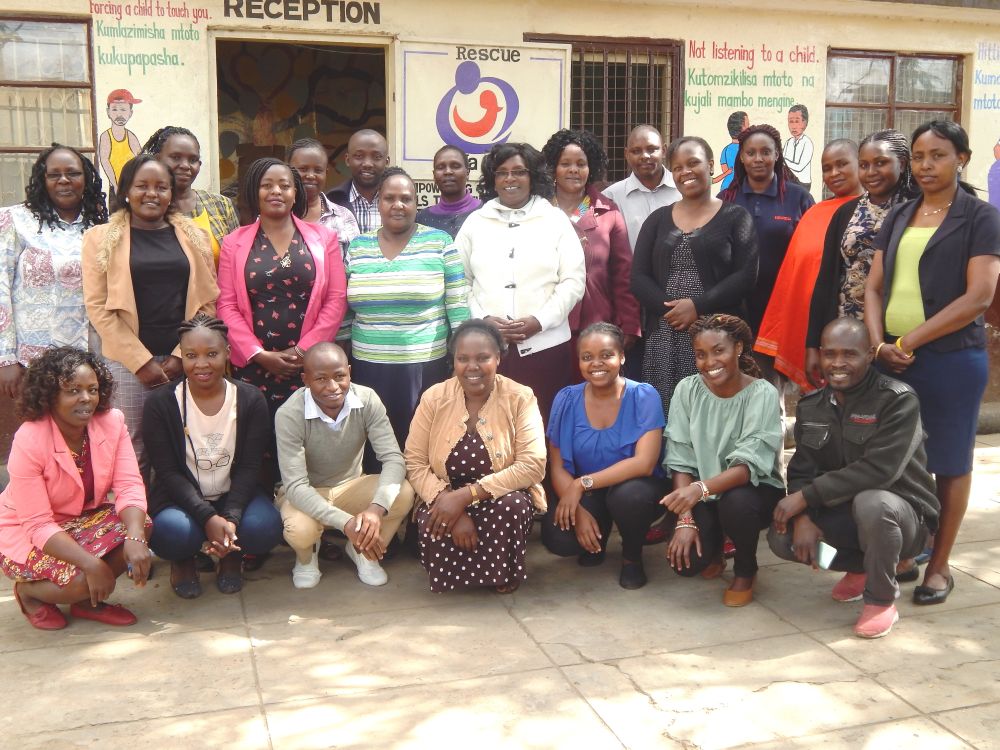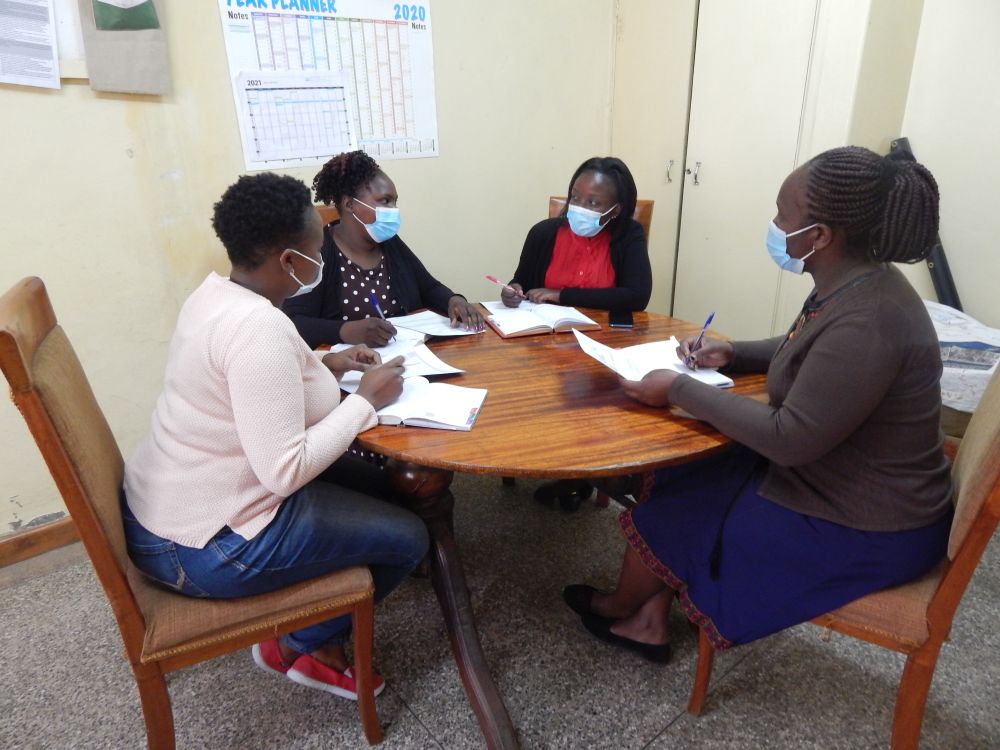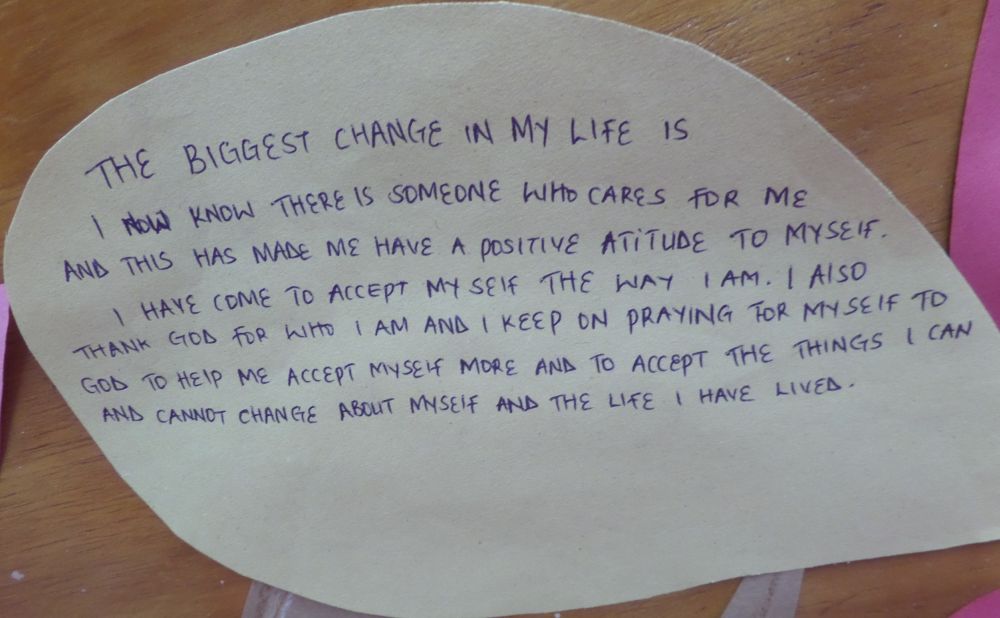Make Your Experiences Count. They Can Change the World.
LET’S BRING ALL OF OUR KNOWLEDGE AND EXPERIENCES TOGETHER.
TOGETHER WE KNOW MORE. TOGETHER WE ACHIEVE MORE. TOGETHER WE DO BETTER.
LET’S BRING ALL OF OUR KNOWLEDGE AND EXPERIENCES TOGETHER.
TOGETHER WE KNOW MORE. TOGETHER WE ACHIEVE MORE. TOGETHER WE DO BETTER.
Published: October 19, 2021
All change, (…), begins when few people start talking with one another about somthing they care about.
– M. J. Wheatley, 2009
Rescue Dada Centre is a Charitable Children’s Institution which was established in 1992. Since its inception it has grown from a small one room rescue operation to a well-known and respected institution, offering rescue, rehabilitation, reintegration, and resocialization of former street connected girls.
When I started working with Rescue Dada as Technical Advisor I met dedicated staff willing to engage and make change happen. All were equipped with the passion of improving the lives of former street connected girls and their caregivers.

The Director of RDC recalls: “In 2008, the organization went from rescuing 40 street connected girls per year to 70. When the Child Protection and the Empowerment Program were established, the portfolio and workload of the employees grew, yet there was very limited supervision, as line managers were missing. The programs and their departments worked with the same families, (…) independently from one another (…): the Empowerment Program focused on the caregivers, and the Child Protection Program focused on the former street connected girl of the family (the case). There was no cohesion, management and sharing of information about a case. This became a challenge. Each department made decisions about a case independently from the other departments – and team spirit was low.”
The situation I witnessed, when I began to work with Rescue Dada, was as the Director described. We started brainstorming on the challenges and looked at the opportunities that Rescue Dada had to assure so that the staffs of different programs would ‘turn to each other’ to commonly address what they all cared about – the lives of the former street connected girls and their families.
The idea of introducing Case Management in Multidisciplinary Teams was born.

In 2019, we started piloting the developed concept by forming multidisciplinary teams across the programs. This we did with the aim of approaching the needs of the target group in a common, systematic and holistic manner, using the wealth of knowledge amongst the staff.
Led by a social worker, a multidisciplinary team of 4 core members from different departments and professions manage their case load through bi-weekly case conferencing and activity planning meetings. They plan interventions and activities to be conducted, and make common decisions about a case from rescue through to graduation (case closure).
Identification/ Engagement
Case Assessment
Case Support Planning
Implementation
Case Follow up
Case Graduation
Note: Back and forth steps are taken according to the needs of the different cases.
Documentation is assured through developed tools that guide the case management process. Supervision and external team debriefing activities are planned to guide the teams in implementation of the concept.
Do you want to know more about Case Management in Multidisciplinary Teams in Rescue Dada Centre? Click here and download the concept.
You can also download the learning from good practice documents here.
Rescue Dada has come a long way with the implementation of case management in Multidisciplinary Teams. Staff in the various programs and departments slowly began ‘turning to one another’ and with the enthusiasm to work together team spirit spread and the cases were no longer regarded as ‘my’ but rather ‘our’ cases.
The Director of Rescue Dada explains, “(…) teams work toward a common goal with consideration of each other’s responsibilities (…). Together they ensure truly holistic care, use synergies from different professions, make common decisions about a case based on shared information, and maximize effectiveness and quality of services.”
Staffs agree, mentioning that the trust among team members has increased; peer support has become a crucial aspect of case management and communication and information flow improved. The staffs have come to appreciate each other’s efforts in handling the cases. The teams grew together through sharing workload, responsibility and accountability. Knowledge and information shared within the teams is owned by the whole team and documented well.
One of the Head of Departments explains: “every member of the team is aware of all the details of the case, making it transparent, which makes the decision of supporting the case easier and planned interventions faster. (…) having made their contribution, all members are satisfied with the way the case has been handled.”

Despite the challenges that Rescue Dada faced in the last two years with the implementation of the multidisciplinary teams, staff is convinced that “multidisciplinary teams are the way to go,” and “bearing fruits”.
With the introduction of Multidisciplinary teams the culture of team work has been embraced by the staff. They have ‘truly turned to one another’ for the benefit of improving the lives of former street connected girls and their families.